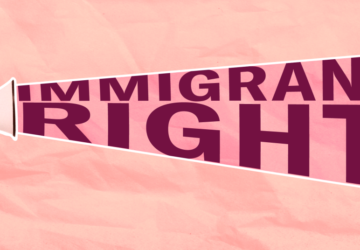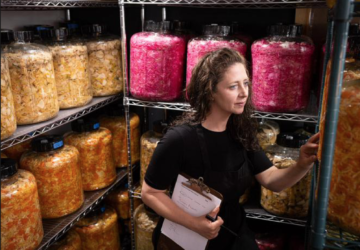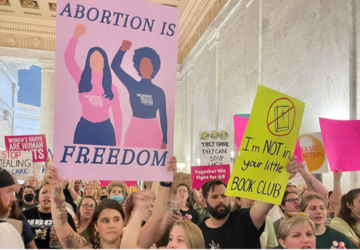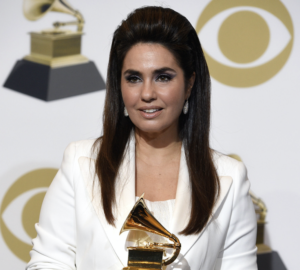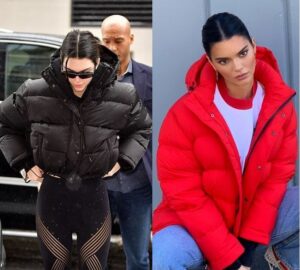Five Questions with Dr. Melissa Goldstein, Esteemed NYC Pediatrician
By Chloe Cornell
Dr. Melissa Goldstein is a pediatrician at Carnegie Hill Pediatrics, on the Upper East Side in New York City. She earned her medical degree in 1999 from Cornell University Medical College, served her internship and pediatric residency at New York-Weill Cornell Hospital, and currently lives in New York City with her son.
After completing her residency, Dr. Goldstein moved overseas and practiced pediatric medicine in Russia for four years. As an American-trained doctor, Dr. Goldstein was in high demand among Moscow’s large expatriate and diplomatic community. She also performed pre-adoption evaluations on Russian orphans who were adopted by international couples, opening up a new area of expertise. She later joined Dr. Jane Aronson at New York City’s International Pediatric Health Services, providing pediatric care for adopted children.
Now at Carnegie Hill Pediatrics, in addition to her typical pediatrician duties, Dr. Goldstein also serves as an Adoptive Medicine Specialist where she helps families navigate the steps to adoption, offers pre-adoption medical counseling, new adoptive-parent counseling, and provides cultural insight to parents in the process of adopting in the United States and abroad.
The adaptive skills that Dr. Goldstein developed while working in Russia have served her well during the coronavirus pandemic. When families stopped bringing their children into the office for well check-ups out of fear of COVID-19 infection last spring, a situation which doctors around the country recognized could lead to other national health crises, Dr. Goldstein cleverly resolved the issue by making socially distanced home visits. To avoid her own exposure, Dr. Goldstein rode her bicycle to her patient’s homes in New York City to inject the necessary vaccinations, and made house calls in the Hamptons – a popular retreat for many of her patients. Local and national media outlets reported on her dedication and she likely inspired other doctors around the country with her thoughtful solution. You can see an article from the NY Post here:
https://nypost.com/2020/04/28/nyc-doctor-has-unique-way-of-making-house-calls-amid-coronavirus/
Dr. Goldstein’s friendly demeanor and exceptional devotion to her patients makes her one of the most in-demand pediatricians for New Yorkers as well as the media. We were very excited to speak with her to get her insights into being a pediatrician, and the impact of COVID on patients.
Chloe – When did you know that you wanted to be a Doctor? Why did you decide to be a pediatrician? What made it the right specialty for you?
Dr. Goldstein – I realized that I wanted to be a doctor when I was a freshman at Cornell. Every freshman has to take a science, and often take Biology 109. I was a consumer economics major. I thought I wanted to go to law school. However, I by far liked my Biology class so much more than my economics classes that I decided to try the pre-med path. I just kept enjoying the sciences, and I decided to switch my major.
When I was in med school, my first two years were book work in the library. But in my third year, I did rotations and got to sample many areas of medicine. This is great because I got to see what each specialty does because I had an opportunity to shadow different specialists. I was just completely 100% interested in pediatrics. I love kids – I love talking to them, working with them. It was a no brainer. In fact, I thought ‘Why doesn’t everyone go into peds?’
Chloe – What are the most important skills and personality traits that one should have to be a pediatrician? What courses and work experience would you recommend for someone who wants to become a pediatrician (outside of medical school of course!)
Dr. Goldstein – There are different kinds of pediatricians. I am a general pediatrician, so much of my day is seeing healthy kids, but they are still scared. They often have stranger anxiety and fear of the doctor’s office. It’s important to be able to talk to kids, relate to them, and be a little silly, so they can be entertained by you. I think that is key. Another important part of being a pediatrician is being able to relate to the parents. I think I became a much better doctor once I had a child of my own because I could put myself in the parents’ shoes — like when your kid is sick, what does that feel like? I can relate better now. I’m not saying you have to have children to be a pediatrician, but knowing the intensity that you feel for your child makes the job easier if you can put yourself in a parent’s shoes having a sick child with an 102 fever and calling me at 2:00 am. The parents’ fear is all the more understandable if you have been in that situation yourself.
Today I had a patient. I have worked with this family for a really long time. They have three kids: a 9-year old- boy, a 7-year-old girl and a 5-year-old boy. Today was the 7-year-old girl’s birthday. The 7-year-old check up is an easy one – there are no shots or bloodwork. She told her mom that for her 7th birthday she wants to get her 7 year check up, and I thought that was so great. To think that she perceives coming to me, of course knowing that she wasn’t going to get any shots, as fun! I knew I had to make a big deal, so on my way to work this morning I stopped at CVS and picked up a really cute card and wrapped up some candy. I realize that I am an important figure in her life, and as she gets older and different things come up, I bet to be part of her support system. I love that.
As for work experience – you need to shadow doctors to see what these people are doing to see if you are into it. And within pediatrics there are many specialties. At first, I thought I wanted to be a pediatric oncologist, but then I spent some time with these people in the top oncology hospital, and I saw that much of their time was spent in the lab. They are often writing important research papers. I realized that wasn’t for me.
For a time, I thought I wanted to be a surgeon, but standing in the OR for hours and hours for long surgeries wasn’t for me. My back was killing. There are certain things that I wouldn’t have known unless I experienced them. Honestly, one of my least favorite things about my medical school experience was my surgery rotations. And I liked the actual surgeries. I just hated standing – not sure why surgeons don’t use stools more often.
Chloe – You worked in Russia for four years after medical school. What was it like working in a foreign country? How is healthcare different there? In addition to gaining insights and experience into the world of adoption, were there any other aspects of your time there that you think enhanced your experience as a pediatrician?
Dr. Goldstein -I went to Russia after I completed four years of medical school and three years of residency. It probably differs from country to country but speaking for Russia, their medical care is very different from medicine here in the US. I was working in a fancy international medical center. Clients were typically wealthy Russians and foreigners. I wasn’t working in a situation like Doctors without Borders who are usually working in third world countries. I was working in a third world country more or less, but I was not working as a third world physician because I had far better resources because of the company that I was working for. In addition, I had a translator, so the language barrier wasn’t an issue. I would say it is really hard to practice medicine without the camaraderie of partners because it is nice to have someone to discuss things with. When I was in Russia, I didn’t have any partners. I was the only English speaking pediatrician. There was an OB and different specialties, but I really missed out on the ability to consult with colleagues. I really respect my partners now, and I trust them to cover my patients when I am not available.
I had to improvise, so I developed relationships with specialists in the US. I had my pediatric neurologist and my pediatric endocrinologist, and many more.
I found that I had to be resourceful to get second opinions and bounce things off other doctors. The other thing is that I had just finished my residency, so I hadn’t really worked yet, and these people were coming to me with things that I would have never had the chance to get my hands on if I were at the tertiary center of Cornell. I was managing acute diabetes. I was sewing someone’s facial laceration. I was doing stuff that I never had the opportunity to do because when you train at a place like Cornell, everything is so specialized that all the diabetes goes to endocrine, all the facial lacerations goes to plastic surgery. It was a good opportunity to manage things that I would never have had the opportunity to do if I were in New York.
I also think living abroad is an amazing thing to do. Seeing how other cultures live and how medicine is practiced. From a professional standpoint, it was super interesting. I got into the adoption world which I never would have been exposed to here. I think IVF is more successful now, but when people couldn’t have babies, Russia was a big source for international adoption. People used my services to examine babies before they committed to an adoption. It was really extraordinary because I would go into the orphanage to examine the babies before the potential parents saw them, and then I would call them and say, “I think this child could be a good fit for your family.” What a great call to get to make!
Chloe – The COVID pandemic has impacted everyone and everything. Of course you have a front row seat, and you quickly adapted your practice to treat your patients at home to make sure they were up to date on their vaccines. Have you been able to identify any other impacts on kids from the pandemic, whether from anxiety, lack of social interactions, developmental delays, etc.? Is there any advice you give to teenagers in particular who are missing out on milestones in high school and college?
Dr. Goldstein – Physically I haven’t been that worried. Our young patient population will do pretty well with COVID. We have a pretty big practice and we haven’t had to send any children to the hospital for COVID and only a few patients in our practice have gotten very sick.
But the impact on mental health is unbelievable. I can’t tell you how many kids are coming in with vague complaints and worries. I see physical ailments that are likely psychological ailments – psychosomatic. And kids are blue about what they are missing out on, and for reasons they don’t even know, like not getting enough exercise, not enough outside time. Then the littler kids that you can’t really explain what is going on nor can they explain what they are feeling. I’m finding regressions in sleep, regressions in toilet training, and more temper tantrums. The mental impact of this pandemic is very upsetting.
Even the babies, when I engage with them, they only see my eyes, which are behind two sets of glasses. And all they can see is eyes. I can’t make faces with them, so it is affecting every age group. I just did a check up on an eight month old and his entire life he has only seen people in masks. Usually when you are walking down the street and you see a baby, you smile at them, and these babies aren’t getting any of that. They don’t see anyone smiling at them even though people probably are smiling under their masks. The mental impact of this is going to be as dramatic as these crazy numbers you are seeing.
Chloe – Have there been any positives to come out of the pandemic? For example, the rise in telemedicine? Increased hygiene? Are there any specific things you would encourage people to do to support their immune systems (sleep, specific vitamins, etc.)?
Dr. Goldstein – Telemedicine doesn’t work great for me. But I think it is giving people access to more things. I teach CPR classes, and I have much better attendance now because people can make it from their living room.
I have not seen and I don’t think we will see a big flu season because of masks. It’s crazy how many fewer sick visits I see because kids are not in school. They aren’t getting their germs on each other, and they are practicing good hand hygiene. There is a decrease in sickness in general.
I think everyone should make sure to have a good diet with lots of protein. People should take vitamins, specifically vitamin C and D, and get outside every day for fresh air.
It’s hard to have motivation and do daily things to feel good – some people are slacking on a lot of stuff like showers because they think what’s the point, no one is going to see them, but it is important to feel good and clean.
You can learn more about Dr. Goldstein and her practice Carnegie Hill Pediatrics here:
https://www.carnegiehillpediatrics.com

